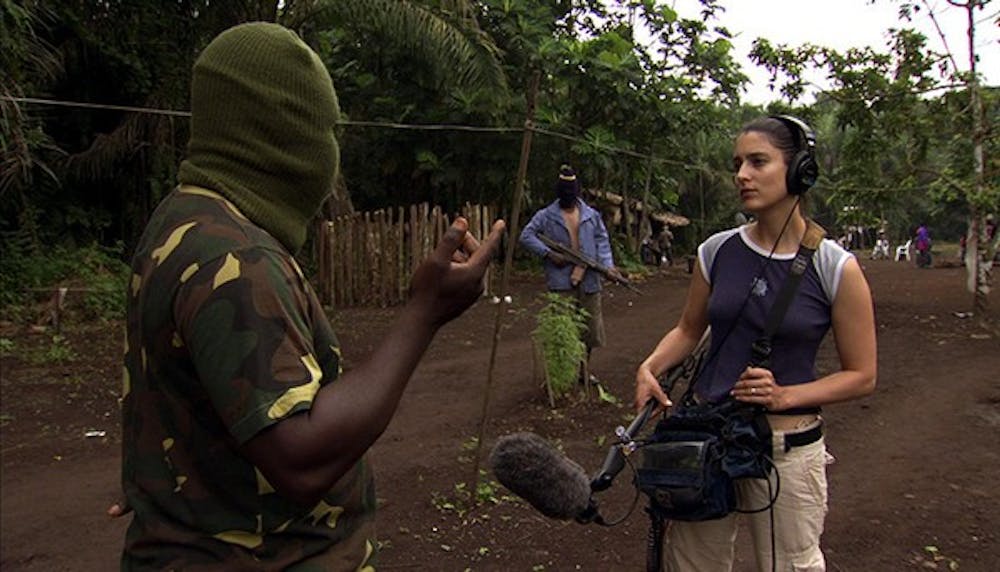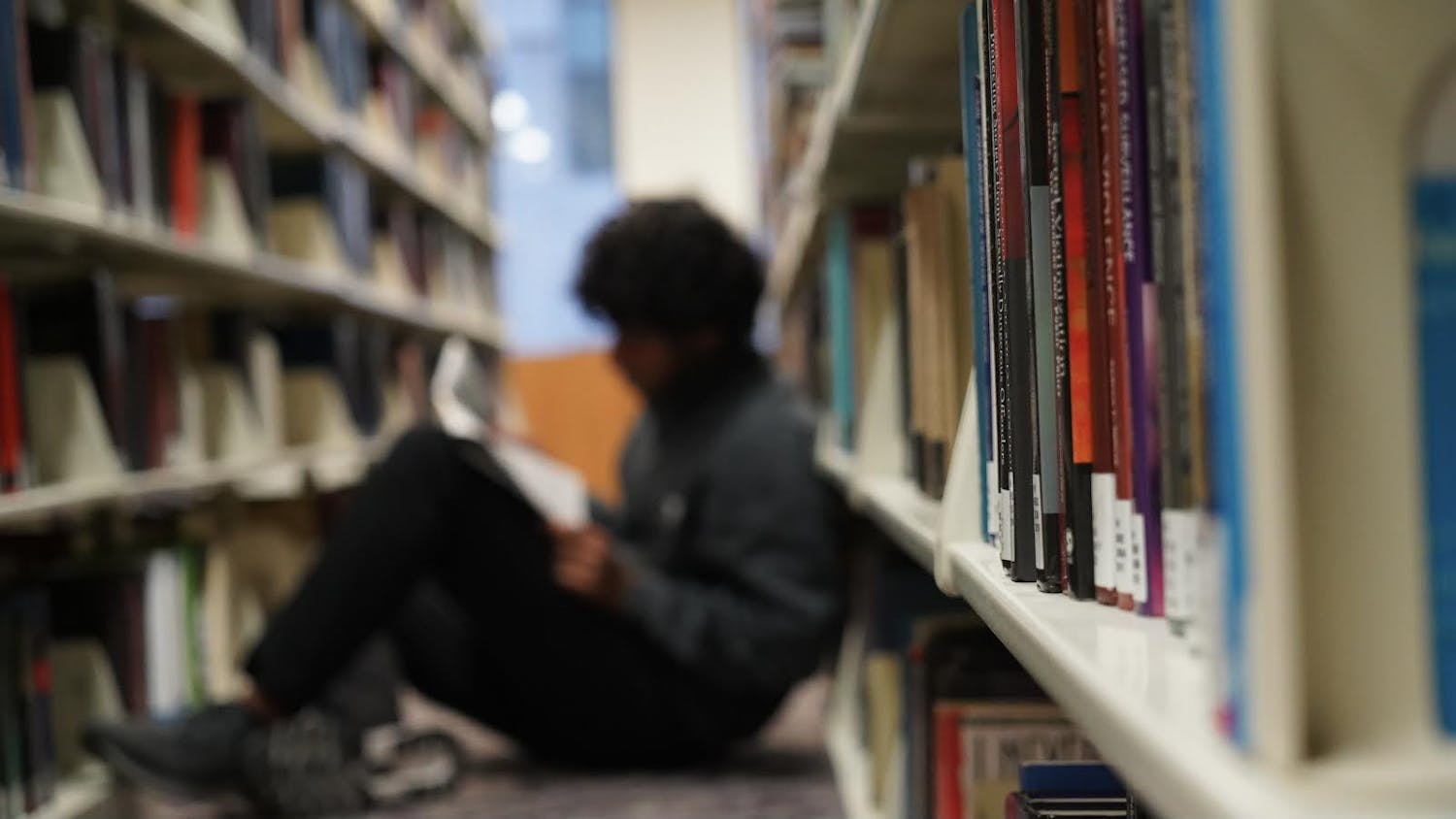Rachel Boynton is ambitious. Continually seeking new ways to push her filmmaking skill to maximum capacity, she took the feature documentary scene by storm with a film about corporate malfeasance in “Our Brand is Crisis.” Returning once again with an even more ambitious subject, “Big Men” depicts backroom corporate dealing and even larger egos searching for oil and riches in Ghana and Nigeria.
Boynton took time to talk about her new documentary, “Big Men,” with The Eagle and her origins in the documentary filmmaking sphere.
Eagle: How did you arrive at documentary filmmaking as your career?
Rachel Boynton: When I was in college, I had an enormous amount of energy, and I was good at a lot of different things, and I had no idea what I wanted to be. I had a lot of thoughts about maybe what I wanted to be. I tried a lot of those things through internships and was pretty disillusioned by pretty much everything that I tried. When I finished college, I made a list. All the things I like to do and all the things I thought I was good at, and I looked at the list and thought, you know what? I should try documentary filmmaking. But this was pre-sort-of-useful internet. I mean the internet existed, but it certainly wasn’t a place you could go to and find people. There was really no way of finding documentary filmmakers. So I didn’t really know how to go about it.
I wrote a bunch of letters. I went to Brown as an undergraduate, and I also went to the alumni office and they had a big binder. In a section of the binder was film and under the film section were the alumni who worked in film, and I wrote them all letters saying, ‘Hi, my name is Rachel Boynton. I’m graduating and I want to be involved in documentary film.’ And I wanted to move to Paris. So I want to be involved in documentary film, and I want to live in Paris, ‘Do you know anyone in Paris who can help me? I’m going to call you in a few days to follow on this note.’ And I actually got an internship on a documentary in Paris that way.
Then I couldn’t get a real job in Paris because of my visa status. I had to take the first thing that came along, so I was teaching English, and I was barely surviving, and I decided that my prospects weren’t so great there and that my brand of energy…I’m sort of capable of doing things through a lot of hard work… and I just didn’t feel as if that hard work ethic was gonna be rewarded in France, as a foreigner, because I didn’t really have any connections there. So I ended up coming to New York, coming back to the states. I went to the graduate school at the journalism school at Columbia, and that was sort of random too, but that’s a separate story. And then I wasn’t going to stay in New York, I was going to go to San Francisco, and I kept telling everyone that I wanted to be involved in documentary filmmaking.
My roommate was looking for a job, there’s a school at Columbia called the School of International Public Affairs, and she was on the job bank for SIPA and she saw a job advertised [for an] associate producer wanted for documentary film about international human rights issues: must speak one of the following languages. And it was like Serbo-Croatian, Fujianese and Francophone African French. And I speak fluent French and I had spent some time in Africa, and I was like this is my job! This is the job that I have been looking for for years! So I applied for the job and they offered me the job on the day I graduated. And that was my first gig. And I ended up working on this amazing film that ended up being called “Well Founded Fear,” about political asylum in America. I worked on that for a couple of years. Learned an enormous amount and went to work for a couple other filmmakers and it sort of it went from there.
E: What was your initial attraction to “Big Men?”
RB: Well, I made a film. This is my second film as a director. My first film as a director is a film called “Our Brand is Crisis.” I finished it in 2005, and it did the whole festival circuit and then it came out theatrically in 2006. So in 2005 and 2006, I was thinking about what I wanted to do next. I decided I wanted to make a film about the oil business because at the time I was at a place in my own life where I decided I wanted to do something really big and hard. I was happy with “Our Brand is Crisis,” but I felt I could do better, and I wanted to push myself to do something bigger, harder and better.
I felt like I was not seeing anything about the oil business from inside the [business] and [it] wouldn’t that be cool to get inside the oil business. Then I learned about the gulf of Guinea, off of West Africa. It’s this place where a lot of companies were going to find oil. And then I learned about this militancy in Nigeria, and then I thought, ‘Okay, well, I’m going to go there. That’s where I’m going to find my movie.’ So I bought a plane ticket and went to Lagos, and I started looking for the movie.
E: Nigeria has found itself mired in problems from oil companies. Is the threat of violence largely true?
RB: Well, the situation there is highly complicated. The relationship between the oil companies, the government and the people has been historically a mess. It’s a very messy, murky situation that has been tainted by dictatorship and self-interests for years.
E: It’s interesting that there’s some juxtaposition between Nigeria’s political problems with oil companies and Ghana’s hope that the discovery of oil will be good for them.
RB: It’s not Nigeria’s problem with the oil company. Actually, the two sides are structured very differently. The Ghana piece is really about a conflict between the company and the government, and the Nigerian piece is really about a conflict between the government and the people. Historically in Nigeria, there have been many problems between companies and people. But the emphasis on the Nigerian piece is really on trickle down and on this question of trickle down, which has more to do with the relationship between the government and the people.
“Big Men” is now playing in theatres in D.C.





